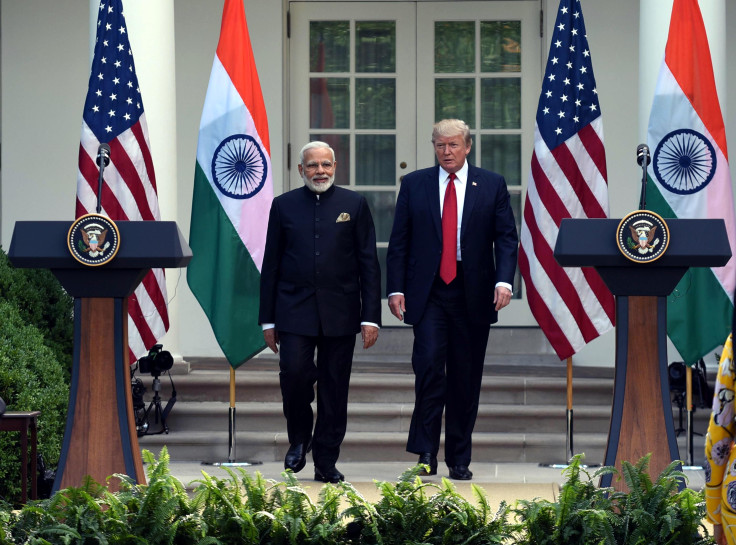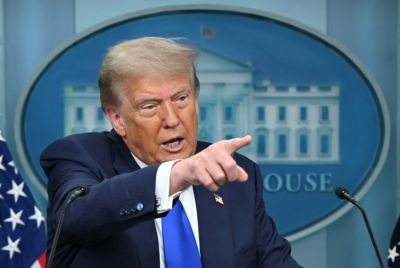Trump Claims Modi Swore Off Russian Oil — India Fires Back With Reality Check
India Rejects Trump's Russian Oil Claim, Stresses Energy Independence Amid US Pressure

The United States found itself embroiled in a diplomatic tug-of-war this week after President Donald Trump asserted that India's Prime Minister Narendra Modi had pledged to halt all oil purchases from Russia. Trump framed it as a diplomatic win, saying he told reporters in the Oval Office that 'they will not be buying oil from Russia.' But New Delhi rapidly pushed back, insisting that no such assurance was made and that its energy decisions continue to follow India's own strategic priorities. What followed was an unfolding reality check on the intersection of geopolitics, economics, and strategic autonomy.
Trump's Claim About Modi
During a White House media confrontation, Trump said that he wasn't happy with India's purchases of Russian oil and that Modi 'assured me today that they will not be buying oil from Russia. You know, you can't do it immediately. It's a little bit of a process, but the process is going to be over with soon.'
Moreover, he called the move 'a big stop' and said that he now needs to get China to do the same. The implication reportedly was that the US had succeeded in pressing a major global energy importer like India to turn away from Russia, potentially tightening pressure on Moscow. But the claim introduced a sharp divergence with India's official position.
US President Trump said that Indian Prime Minister Modi told him that India will stop buying oil from Russia, a move Trump described as a ‘big step’ in efforts to isolate Moscow economically https://t.co/aYDDPEyx4W pic.twitter.com/aw1jn0bVjc
— Reuters (@Reuters) October 15, 2025
India Refuses Trump's Narrative
Within hours, India's Ministry of External Affairs (MEA) responded to these claims by the US President. Spokesperson Randhir Jaiswal said,
'I am not aware of any conversation yesterday between the two leaders.'
Reports further suggested that no telephone call between Modi and Trump had taken place in the past 48 hours.
Jaiswal also emphasized that India's energy import decisions are guided by India's needs, as he said, 'India is a significant importer of oil and gas. It has been our consistent priority to safeguard the interests of the Indian consumer in a volatile energy scenario. Our import policies are guided entirely by this objective,' he added, 'Ensuring stable energy prices and secured supplies have been the twin goals of our energy policy. This includes broad-basing our energy sourcing and diversifying as appropriate to meet market conditions,'
Furthermore India played it brilliantly and diplomatically as they did not snub the US as the statement continued,
'Where the US is concerned, we have for many years sought to expand our energy procurement. This has steadily progressed in the last decade. The current Administration has shown interest in deepening energy cooperation with India. Discussions are ongoing.'
This well thought out response casts a serious shadow on Trump's narrative because if the conversation never occurred, then the claim that Modi had pledged to sever energy ties with Russia is simply a lie or at least Trump now needs to present some evidence to back up his words. India's refusal to confirm the conversation also affirmed a longstanding policy of keeping energy diplomacy under its own control despite external pressures, even while exploring options for broader cooperation.
Our response to media queries on comments on India’s energy sourcing⬇️
— Randhir Jaiswal (@MEAIndia) October 16, 2025
🔗 https://t.co/BTFl2HQUab pic.twitter.com/r76rjJuC7A
Why India Can't Stop Buying Russian Oil
The backdrop to this clash is India's deep reliance on Russian crude. Since the beginning of Western sanctions on Moscow, as per sources, India has emerged as a top buyer of Russian oil, lured by steep discounts and accessible supply routes. In fact, Russia reportedly supplies nearly one-third of India's overall oil imports. Attempts to reduce that exposure carry real economic risks, especially given global volatility in energy markets and the imperative of energy security for over 1.4 billion people in India.
India and the US have clashed before in August, when Trump imposed some of his highest tariffs on India. India now faces additional import duties of 25 per cent on top of an existing 25 per cent base rate. Yet India has stood strong and firm indicating it will not allow America to dictate its energy needs or interfere in a relationship with Russia that stretches back to the Cold War as per reports. Russia remains India's largest supplier of arms as well, and that defense partnership continues to underpin their strategic ties.
India's reaction to Trump's claim and the ensuing tariffs reinforces one clear message: it refuses to bow down to external pressures.
© Copyright IBTimes 2025. All rights reserved.




















